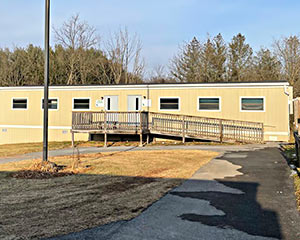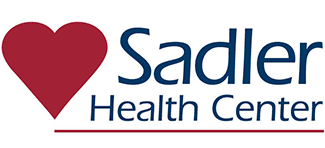By Jim T. Ryan | Perry County Times and Luke Roman | Perry County Times

West Perry School Board has postponed a decision on a lease agreement with Sadler Health Center for a pediatric health clinic at the school following multiple meetings in which parents, community members, and board members questioned the proposal.
Some community members have said the clinic is controversial, and they want the district to focus only on academics. They also are concerned about costs, parental consent issues, and whether the clinic would be open to the general community, which it will not.
But administrators said the services the clinic would provide, including physical, dental, and mental health services, to district students would help it improve learning.
Specifically, the district over the past two years has seen a dramatic increase in students requiring mental and behavior health services, which is taking its toll on teachers and holding back students.
“We see a need for our students, and we welcome this partnership, but we’re not driving any policies for Sadler,” Acting Superintendent Nancy Snyder said during interviews with district and Sadler officials last week.
At this point the only thing left for the board to approve is a lease agreement for the trailer that Sadler will use for the clinic.
The district said no action will be taken on the matter until the March 14 meeting.
“The district’s involvement is as a landlord,” Snyder said.
She said the matter was removed from the Feb. 14 agenda citing several board members desire for more information. An executive session for the board to fully vet the matter is scheduled for Feb. 28. The issue will be discussed during the March 7 Committee of the Whole board meeting. Snyder also said a Google survey will likely go out to measure the community’s sentiment on the matter. The board is taking written questions from the public.
Getting to the office
West Perry has agreements with Sadler to provide various health services to students whose parents have opted in. The original agreement was for dental services. The board began talking about full doctors’ office for students in 2020. The board approved a memorandum of understanding, similar to a contract, in August 2020.
In 2021, the district renewed the MOU for Sadler to open a health clinic for student patients onsite. The relationship and services have been discussed in school board meetings.
Sadler received a $75,000 grant from the Partnership for Better Health to renovate the trailers. The foundation makes grants for other health care groups, facilities, and programs around the region, including a grant to continue building the Lynn Sheaffer Dum Memorial Park next to West Perry High School.
“The remodeling was already completed,” said Manal El Harrak, Sadler’s CEO.
“We engaged a vendor that’s local here to Perry, Collins Construction. And they were really great to work with.”
Sadler has paused its purchase of exam tables and other equipment to outfit the clinic until the issue of the lease agreement is resolved, El Harrak said.
The district has said if it doesn’t approve a lease, it could be held liable for money other organizations spent to improve the trailers. That would be vetted by courts, but everyone involved said they don’t want it to get to that point. Students and families would be better served by the clinic.
In order to receive services, students need to be established as patients by their parents, per regulations for school-based clinics, said El Harrak and Katrina Thoma, Sadler’s director of medical services, a registered nurse, and a pediatric nurse practitioner. The clinic is open to only students whose parents have scheduled doctors’ appointments. No walk-ins and no community patients will be accepted.
The clinic would be open two days a week to start, and would add more days as the number of patients dictates the need for more hours.
No treatments or services will be given without parent consent, except where the law allows for mental health or related to issues of abuse, they said. The law allows patients under 18 and over 14 to discuss mental health services, HIV and other disease testing, pregnancy care and contraception. Such issues are covered in the consent form parents read and sign to establish care. The same laws apply to other health providers.
“This is not an open-door school-based health center model,” El Harrak said. “It starts with registration and establishing care with Sadler, as either a primary care provider or as a dentist. So that’s the one step where I think there’s a lot of misinformation around. Parents have a choice and decision to make.”
Currently, 487 West Perry children are already Sadler patients, according to the center. The school clinic would make it easier for them, as opposed to traveling to Carlisle.
While the clinic is centrally located near the largest number of students, Sadler’s scheduling of appointments will work with parents of students in Blain, Carroll and New Bloomfield elementary schools.
Sadler does not participate in clinical trials for medicines and does not provide abortion services, per federal law for certified health clinics, El Harrak said. It does not dispense any prescription medicines nor birth control. Patients would have to fill prescriptions with an outside pharmacy.
Public debate
The matter was prominent in a marathon public comment session at the Feb. 14 board meeting. Additionally, it has been the focus of discussions in online forums, where some parents say misinformation and inaccuracies have swirled.
Those who favor the clinic, including teachers, linked children’s health issues to academic performance and see the integration of health services into the school as a positive step, particularly in an underserved rural district such as West Perry.
Middle school teacher Amanda Dittmer welcomed the addition of a Sadler facility, noting over 100 of the district’s staff have signed a petition in support. Dittmer said many students need access to health care “in a bad way.” She said it’s “humans helping humans” and many students are suffering from chronic issues that impede their academic progress.
New Bloomfield Elementary guidance counselor Lindsay Anderson voiced her support for both Sadler and Social Emotional Learning curriculum (another controversial topic recently). Anderson said while change is hard, modern schools must expand beyond conventional education. Schools have become community hubs, and they should do all they can to aid the families they serve, she said.
Others said the health facility is an example of the district straying from its core mission.
Krista Hess said West Perry has a problem meeting its basic education functions. The district should bear down on that goal instead of pursuing new ones. Hess said kids were being pushed through without basic knowledge and teachers are not adequately supported.
Ashley Weaver said she was concerned some procedures could be time consuming and disruptive to the school day.
Some also questioned how logistics such as wastewater or medical waste would be handled.
Sadler said it will cover its own medical wastes removal services. The district has its own wastewater facility, which the trailers are connected to. Sadler’s services will come at no cost to the district.
A group of skeptical community members have planned a meeting at the New Bloomfield VFW for 7:30 p.m., Feb. 23 to discuss the Sadler lease.
Needs-based
Gabrielle Brandt said at the meeting the issue has become divisive due to lack of evidence and data. She felt the public needed to understand the value-based proposition, and after careful evaluation make an informed decision one way or the other.
“Access to care has been one of the biggest issues we are hearing over and over again,” said Sharon Burns, chairperson of the Perry County Health Coalition, and a retired nurse with 44 years of experience.
The coalition is a working group of health care organizations, county and school officials, pharmacists, doctors, social services, and nonprofits that helps its members find opportunities to improve health care in the county. It doesn’t develop policy or vote on programs.
Recent surveys and focus groups around Perry from coalition partners have found increasing need for a diversity of health care providers and more of them in the county to meet resident needs, members said.
In addition to the nearly 500 children in western Perry County that Sadler already serves, other factors speak to the need, they said.
In some cases, available providers don’t take the insurance or medical assistance that a patient carries. That can mean long travel times to see another doctor or dentist, lost work and school hours, and people going without basic care like checkups.
“If you don’t have the right insurance, you can’t even get dental care in the county,” Burns said.
Health centers like Sadler, a nonprofit created 20 years ago with the sale of Carlisle Hospital, are required to take all insurances and medical assistance by law, its staff said. It also regularly works with people who have limited resources and difficult work schedules to access health care. That includes charging on a sliding scale based on a family’s ability to pay.
“The majority of parents I see are working two and three jobs,” said Thoma, Sadler’s chief medical officer. “This isn’t people who are jobless. These are people who work and can’t afford (medical care).”
Many jobs won’t allow people to have paid time off, she said. She regularly works around parents schedules so they can get children to a checkup.
Nine percent of those under 65 years old in Perry County were without health insurance as of 2020, according to the U.S. Census Bureau. About 7.6 percent of people under the age of 19 are without health insurance. Uninsured rates have been dropping in the county, state and U.S. But in Perry they’ve hovered in the same range for a decade.
Additionally, 8.5 percent of county residents live below the poverty line, according to the census. That’s declined steadily since 2018, but it’s more pronounced in parts of the county.
West Perry school district has the second highest children between 5 and 17 years old living in poverty at 10.7 percent. Newport has the highest at 13 percent.
The poverty line in 2022 is household income of $27,750 for a family of four people, according to the U.S. Department of Health and Human Services.
The federal poverty line is low, meaning people may be above it and not qualify for assistance programs, but still have an extremely difficult time making ends meet, including paying for health care, food, housing, and utilities, health and school officials said.
“This is a chance for parents who don’t have access to medical or dental services, if they choose through written permission, to have their children access these services,” Burns said.
Jim T. Ryan can be reached via email at jtryan@perrycountytimes.com
